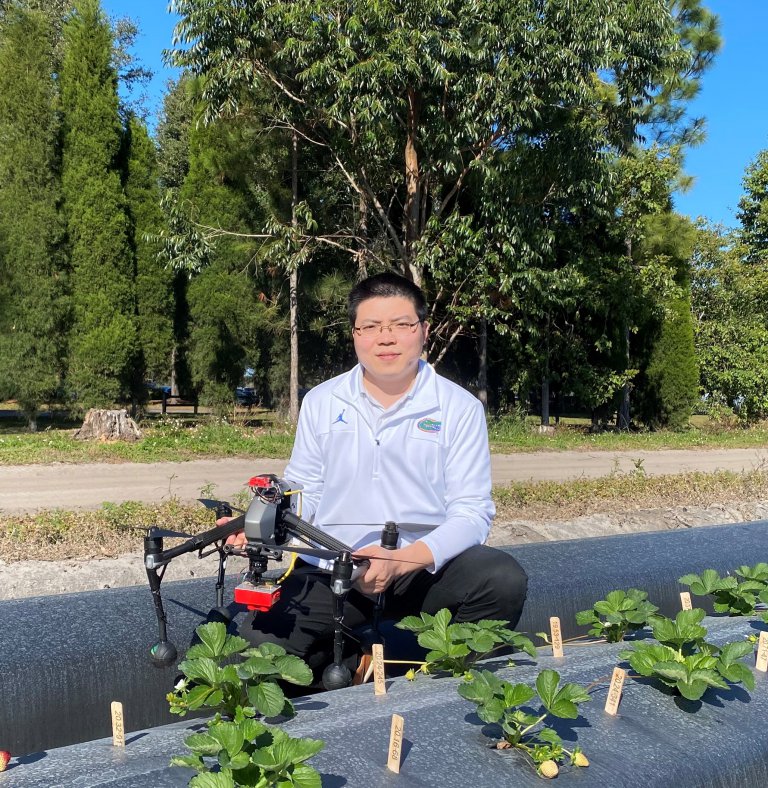BALM, Fla. — Kevin Wang trained as an engineer and gave little thought to agriculture. But then, life took a few turns.
When Wang joined the American Society of Agricultural and Biological Engineers robotics competition, he gradually realized how much of a difference an engineer could make in agriculture.
“It is much harder than I thought it would be to apply some widely used technologies in agriculture than in other areas,” Wang said. “Perhaps that can explain why you don’t see as many autonomously driven tractors as Tesla’s autonomous cars. So as ag engineers, we face more challenges, but we have to solve those to benefit farmers and agriculture.”
AI Studies

Wang started at the UF/IFAS Gulf Coast Research and Education Center (GCREC) on Oct. 1. He joined UF/IFAS because of the university’s vision of becoming an international leader in Artificial Intelligence (AI) research and applications.
Wang is the new agricultural engineer and AI expert at GCREC. His research will help plant breeders at the center. He plans to use AI to help the center’s scientists develop new varieties of tomatoes, strawberries, ornamental plants and other specialty crops with more efficiency and precision.
“That vision matches my research at the intersection of plant breeding, ag engineering and computer science. The diversity of specialty crops in Florida also attracts me as I could see a wider research space,” he said.
Research in Progress
He’s already using ground and aerial images (via unmanned aerial systems, or drones) to help plant breeders zero in on the phenotypes – or visible characteristics — they seek. Through phenotypes, plant breeders can select desirable traits and provide growers with new plant varieties. He plans to use UF’s HiPerGator, the largest university-based supercomputer in the world, to augment his research. Analysis results from HiPerGator could indicate which phenotypic data will help develop the best plant cultivars with the most efficiency.
Another agricultural engineer and AI expert is expected to start at the Gulf Coast REC soon. The two hires at GCREC and the center’s plan to establish a Center for Applied Artificial Intelligence in Balm are part of a UF/IFAS-wide push to become the Silicon Valley of agri-tech research, said Scott Angle, UF senior vice president of agriculture and natural resources and leader of UF/IFAS. Indeed, AI has often been referred to as the fourth agricultural revolution.









